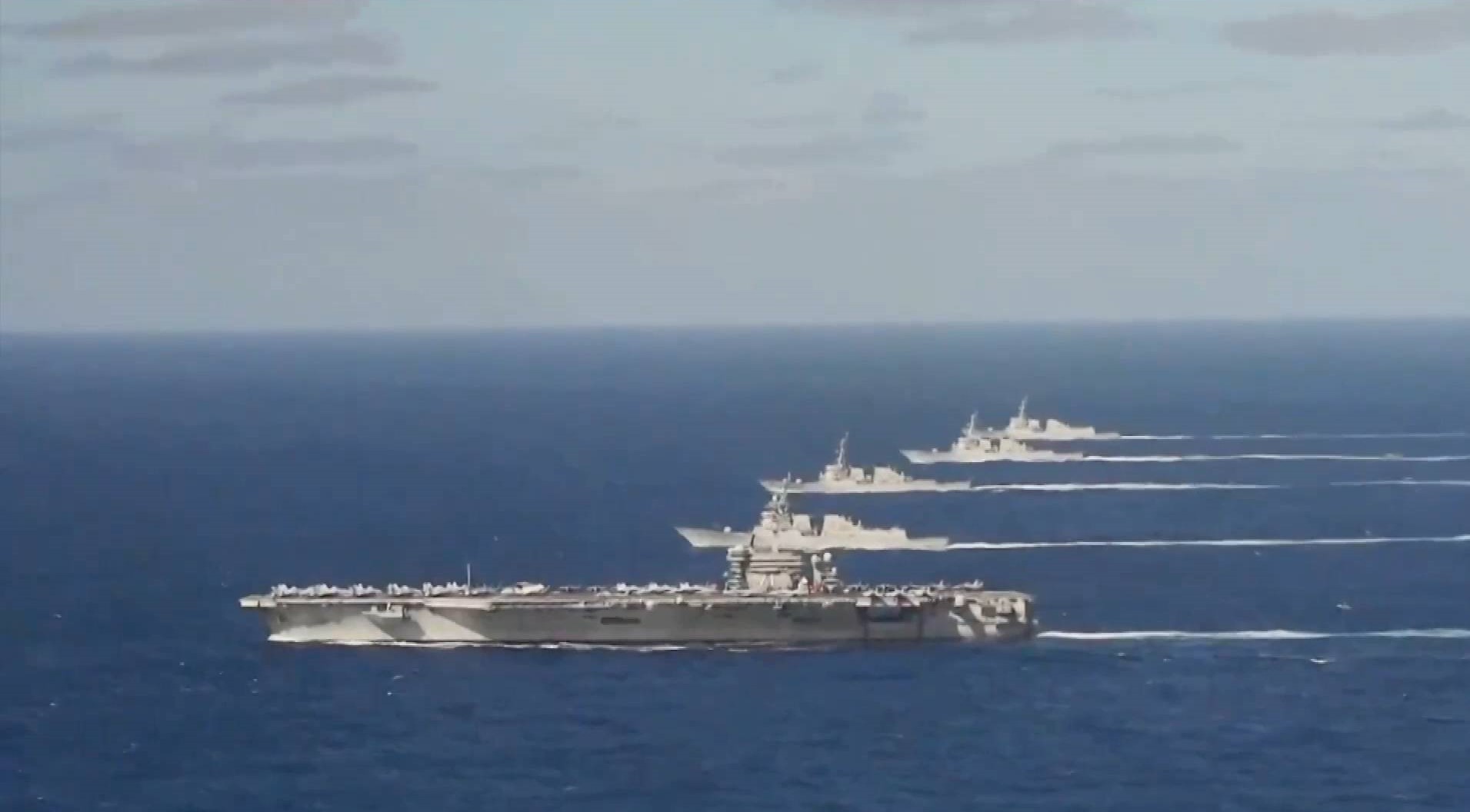AUKUS: How it breaches international law

Photo/Xinhua
Providing weapons-grade enriched uranium to a non-nuclear weapons state to power military submarines undertaking provocative action must be opposed.
The recently announced AUKUS military pact is a major new multifaceted defence agreement between the US, UK and Australia. It sees the latter firmly jump into the US camp and the former strengthen and renew its Pivot to Asia through unashamedly militaristic means. The UK is coat-tailing the US as usual, hoping to garner some jobs in nuclear reactor production, and trying yet another gambit to boost the ‘global Britain’ profile.
Billed by the signatories as ‘a landmark defence and security partnership’, it’s partly being sold as a values-driven agreement to support a peaceful rules-based international order (US/UK rhetoric for some time now even when the US was unilaterally withdrawing from fundamental pillars of said order); and its key military focus centres on ‘the development of joint capabilities and technology sharing’, deeper integration of security and defence-related science, technology, industrial bases and supply chains.
What this actually means is that the US and UK are going to collaborate with Australia to help provide them with nuclear-powered submarines. Bizarrely the joint governments’ statement suggests that this will ‘promote stability in the Indo-Pacific’; it looks more likely to massively ramp up tension in the region at a time when cooperation with China – in the context of the COP26 to deal with the climate emergency – should be top of the agenda.
Nuclear – whether military or civilian – is always controversial and symbolic, and here it means Australian admission to the top level club; only six countries, all nuclear weapon states, have nuclear-powered subs. It is also an indication by the US of the priority it gives to this growing – fortunately still cold – conflict, and its determination to get Australia onside and keep it there. The nuclear component of the subs lies in the fact they are powered by onboard nuclear reactors.
Reactor technology is highly prized and top secret, as the uranium used by the US and UK for the reactors is enriched to 95% – weapons grade. The US and UK cooperate on this under the terms of the Mutual Defence Agreement, the world’s most extensive nuclear sharing agreement which first came into force in 1958. If the Australians were going to build the reactors themselves they would need US technology and expertise and a nuclear-sharing agreement with the US of their own.
UK Prime Minister Boris Johnson has said that the AUKUS agreement does not contravene the Nuclear Non-Proliferation Treaty – that AUKUS involves nuclear power, not nuclear weapons, so the restrictions do not apply. But the fact is we are talking about providing weapons-grade enriched uranium to a non-nuclear weapons state to power military submarines undertaking provocative action in a very fraught area of the world.
The NPT does not stop the exchange of civil nuclear technology but it stipulates it must be ‘for peaceful purposes’. Sending war-fighting subs to potential conflict in the Indo-Pacific region is hardly that. This breach of international law must be opposed.
The author is General Secretary of the Campaign for Nuclear Disarmament .
The opinions expressed in the article reflect those of the author, and not necessarily those of People's Daily Online.
Photos
Related Stories
- China warns against AUKUS, to make meetings routine with Pacific island countries, enhancing ties to higher level
- AUKUS nuclear submarine deal threatens global stability
- Putin says AUKUS harms regional stability
- Chinese ambassador slams AUKUS pact as "textbook case" of nuclear proliferation
- AUKUS deal to seriously affect regional peace, stability, security: scholar
Copyright © 2021 People's Daily Online. All Rights Reserved.










